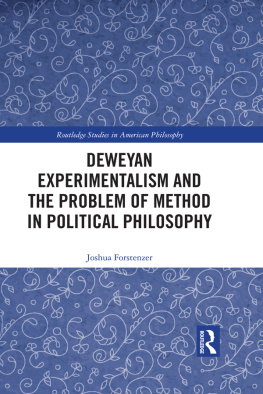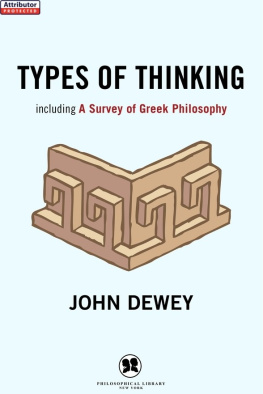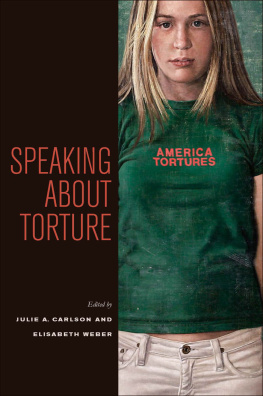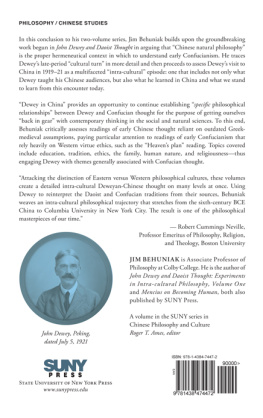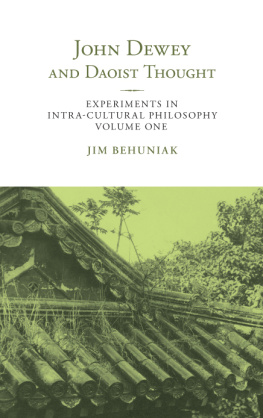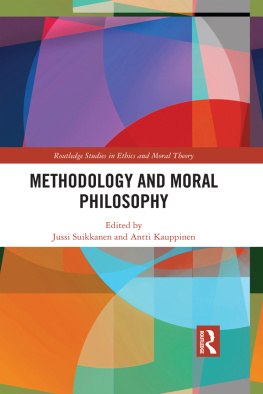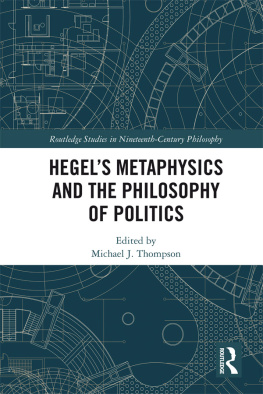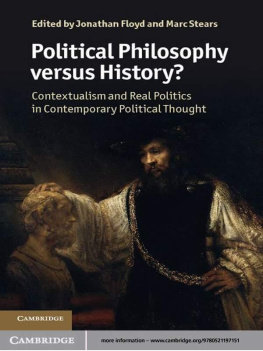This book is the product of over a decade of engagement in sustained philosophical reflection and varying degrees of involvement in civic life. As a result, the people who have contributed directly or indirectly in shaping this project and helping me bring it to full completion are too numerous to mention here. However, I will endeavour to do justice to those who stand out most clearly in my mind.
Let me begin by thanking Robert Stern for his gracious and unflagging intellectual, academic, and personal support throughout the life cycle of this project. As a doctoral supervisor, Bobs patience, intellectual rigour, willingness to adapt to my needs, and his faith in me were essential ingredients in shaping the ideas found within this book. Anyone who knows Bob knows how stunningly perceptive he is. This book has thus benefitted from his invaluable insights and his hawk-like attention to detail at all stages. Most kindly, Bob read the full manuscript before final submission, providing excellent editorial guidance to the very end. Without his dedicated care and critique, this book would be much the worse for it. For that, and much more, I am profoundly indebted to Bob.
I would also like to thank Christopher Hookway for first introducing me to John Deweys philosophy, and then for encouraging me to develop my own related ideas. Throughout my doctoral studies, Chris was a meticulous, involved, and supportive guide, often contributing crucial insights and criticisms that have enabled the ideas in this book to gain in depth immeasurably. More generally, in my broader intellectual journey, Chris has admirably served for many years as guardian and interpreter of the tradition of pragmatism with endless wisdom, infectious passion, and delight.
Moreover, Matthew Festenstein and Christopher Bennett have provided helpful commentary, important clarifications, and useful suggestions as doctoral examiners. They both have my sincere gratitude. An extra layer of thanks is owed to Chris, who took the time to read the full manuscript and provide important commentary right before completion.
Special thanks to Andrew Vincent for engaging with me so very thoughtfully over the years, and to Cornel West for the inspiring conversations in Cambridge. I would also like to thank Peter Levine for our rich exchanges, for introducing me to many aspects of the more empirical literature covered in the final chapter of the book, for providing excellent career advice, and for kindly reading a completed version of the manuscript while providing invaluable final comments. I would also like to extend special thanks to Robert Talisse for generously giving of his time, first in Reykjavik and then in Sheffield (twice), to discuss our disagreements (and our agreements) over many hours of rich, fun, and challenging conversation.
More generally, I want to thank my teachers throughout the years, my students, and many members of the University of Sheffields wider intellectual community (extended over time and space) for contributing to this book by reading, critiquing, or simply discussing relevant ideas with me at one point or another in the writing process. Special thanks are owed to Katharine Dommett, Mara-Daria Cojocaru, Angela Hobbes, Jules Holroyd, Jennifer Saul, Yonatan Shemmer, Casey Strine, Luca Barlassina, Cathy Legg, Peter Jones, Ahmad Fattah, Holly Lawford-Smith, Megan Kime, Clara Sandelind, Graeme Forbes, Heather Arnold, David Ekstrand, Jan Kandiyali, Paul Giladi, Daniel Herbert, Paniel Osberto Reyes Crdenas, Jonathan Lorillard, Tom OShea, Jon Scarlett, Julien Murzi, Aaron Bogart, Sam Waters, Natasha McKeever, Angela Bird, Marcia Vera Espinoza, Murad Abouammoh, Jessica Begon, David Moon, Katie Harrington, Matthew Flinders, Laurence Smith, Armin Khameh, Carl Fox, Joseph Kissolo-Sonko, Joe Morrison, Charlotte Aldwerick, Christina Thuring, Sagar Deva, Leon Derczynski, Janosch Prinz, Will Hornett, Jenn Chubb, Matt Sleat, Peter Verovek, Maria Kasmirli, and Keith Frankish.
I am also grateful to thinkers from further afield who kindly shared their thoughts with me, commented on drafts privately, or responded to presentations that I gave at conferences or seminars which, in some way or another, have fed into this book. In particular, I am thankful to Muriel Rouyer, Karol Soltan, Jonathan Garlick, Vachararutai Boon-tinand, Archon Fung, Clarissa Ryle-Hayward, Marshall Ganz, Ian James Kidd, Thamy Pogrebinschi, Jonathan Collins, Adam Smith, John Schwarz, Elizabeth Krontiris, Maricel Lonati, Megan Boyle, Kevin Dye, Rebecca Michelson, Shawn Lavoie, Markus Holdo, Alice Xu, Mara Marta Maroto, Kevin Ferreira, Charles Petersen, Heather Battaly, Richard Bernstein, Brendan Hogan, David Hildebrand, Fabian Freyenhagen, Vincent Descombes, Steve De Wizje, Lorna Finlayson, Maureen White, Sean Young, Jerry Gaus, David Miller, Leif Wenar, Sean Gray, and Carrie Roush for their insights and conversations. Many thanks also to Willem Devries, Andrew Weckenmann, Alexandra Simmons, and to three diligent, thoughtful, and engaging anonymous referees for all their help and good advice in making this project a reality.
Deweyan Experimentalism and the Problem of Method in Political Philosophy draws partially on previously published works. I would thus like to thank the following for permission to use relevant material:
- Indiana University Press and editor Cornelis de Waal to reprint passages of the following article: Deweyan Democracy, Robert Talisse, and the Fact of Reasonable Pluralism: a Rawlsian Response, Transactions of the Charles Sanders Peirce Society , Volume 53, Issue 4 (Fall 2017), pp. 553578.
- Verlag Karl Alber Freiburg and editors to reprint passages of the following article: Reconsidering Deweys Democratic Socialism in the Age of Populism, Yearbook Practical Philosophy in a Global Perspective: Exploring Pragmatist Options , Michael Reder, Dominik Finkelde, Alexander Filipovi, Johannes Wallacher (eds.), Verlag Karl Alber: Mnchen, pp. 5073.
- The Institute for Human Rights and Peace Studies and editor Vachararutai Boontinand to reprint passages of the following article: A Democratic Ideal for Troubled Times: John Dewey, Civic Action, and Peaceful Conflict Resolution, Journal of Human Rights and Peace Studies , Volume 2, Issue 2, pp. 134.
- Taylor & Francis and editors to reprint passages of the following chapter: Education, Active Citizenship and Applied Social Intelligence: Some Democratic Tools to Meet the Threat of Climate Change, Rethinking Climate Change Research: Clean Technology, Culture and Communication , Pernille Almlund, Per Homann Jesperesen, and Sren Riis (eds.), Farnham: Ashgate (2012), pp. 177191.
Moreover, I would like to thank the Arts and Humanities Research Council for funding my doctoral studies, as well as the University of Sheffield and the city of Sheffield for giving me many of the opportunities that have come to inform much of my thinking on the nature of politics. From this more practical perspective, I would like to thank Joe Oliver, Rachel Colley, Kevin Kennedy Ryan, Jessie Ryan-Smith, Julie Peach, Janet Horwell, Dom Trendall, Peggy Lim, Hassun El Zafer, Minesh Parekh, Christy McMorrow, Ana Popa, Ana Mullaney, Anna Berestova, Tony Payne, Tony Ryan, Mike Braddick, Mark Willoughby, Drew Daggens, Ed Marsh, Usman Ali, Paul Blomfield, Tom Hunt, Madeleine Moon, and David Blunkett for teaching me so much.
More personally, I am grateful to Alexis Artaud de La Ferrire, Abdi-Aziz Suleiman, Abdul Rahman Jama, Paul Moore-Bridger, Benedict Arscott, Neil Mackenzie, Steve Hubbard, and Chris Steadman-South for imagining together how we could be of service to others and for pushing my thinking ever more fully towards the complexities of addressing real human suffering. A most special thanks is owed to Keith Burnett, Ruth Arnold, Dawn Stewart, and Rachel Frith for their companionship, care, and advice throughout the years.

